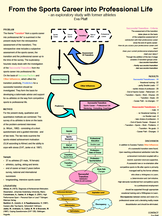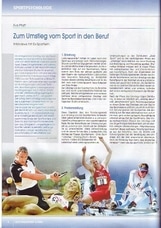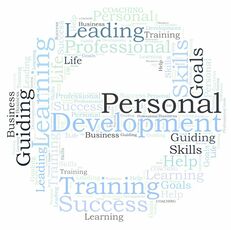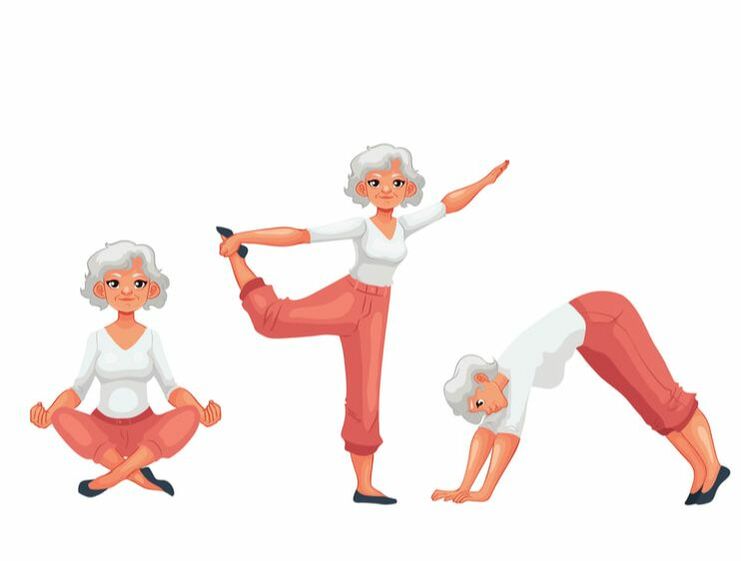Ex-Athletes
Diploma Thesis
"From the Sports Career into Professional Life"
- an exploratory interview study with former athletes A successful transition from a sports career to life after sports is influenced by various factors. These success factors and further influences were investigated in this exploratory-heuristical interview-study. >> Pfaff, Eva (2003). Diploma-Thesis at Frankfurt-JWG-University, Germany. |
Contents of the Survey
A career in competitive sports is subject to physical and biological limits. Therefore, every athlete is faced with the end of the sports career and the transition to life after active sports. The end of a career means giving up a highly trained ability having given the athlete identification and earning him success and recognition.
Ex-athletes start life after sports as beginners in a new field and must find their way in professional life. In this study, the transferability and the benefits of skills acquired in competitive sports are investigated. Also, the questions, to which extent achievement motivation or the ability to deal with stress are transferred into working life and contribute to job satisfaction, are subject of the study. Sample A total of 37 ex-athletes from the individual sports Track & Field, Road Cycling, Alpine Skiing and Tennis were interviewed. According to current knowledge these sports are practiced in a professional environment. They are part of public interest and athletes earn money through competing. All respondents have attained a high national and international level of performance in their sports - the ex-athletes of this sample have collected 11 Olympic medals, 18 World Championships, 12 European and 130 German National Championships in total. |
Why interviews ?
Advantages of Interviews - Qualitative Methods Surveys can be carried out by questionnaire (quantitative method) and interviews. Interviews are part of qualitative methods and respondents can answer freely. They get an opportunity to talk about their biography, their opinions and experiences. With this possibility of free answers, the interviewer gets a deeper and more intensive insight into the world of the interviewee. With the qualitative insight into the life of the interviewee in such a dynamic field like competitive sports, changes and developments can be observed which are otherwise inaccessible. Increasing demands on the athletes and the progressive professionalization in competitive sports also require improved methods of investigation. In addition, outsiders can (learn to) understand the situation of former athletes at the end of a career and the transition to working life better through subjective assessments. |















